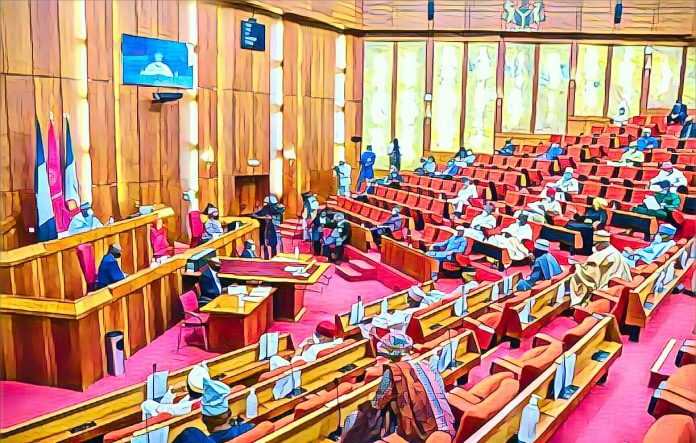KEY POINTS
- Nigerian senators are divided on the idea of reinstating a regional government structure.
- Proponents argue it would improve governance, while critics fear it could destabilize the country.
- Discussions reflect growing regional and political tensions within Nigeria’s federal structure.
A raging controversy is brewing in the Nigerian Senate, as the legislators are on one side of the divide trying to come to terms with a motion to reinstate the regional system of government.
When there is a call for regional government, the senators have been divided into those who support the call urging for a return to the pre-federal system that was adopted in Nigeria in 1967 and has been warned that the return to that system will only serve to erode the central authority of the nation.
The proponents of the regional system think that it would enhance more rational administration and let the regions solve problems. They have contended that Nigeria’s current federal system has produced over-centralization which tends to undermine local initiative and development.
Those senators calling for a change argue that the current level of regional differentiation and political management crises are signs that the current structure is no longer useful to Nigeria.
Critics demand more decentralization
The major concern of the advocates of the regional system is the possibility of improving the local government. They believe that the regional level would be more effective in the administration of resources as well as the implementation of policies given the population’s needs.
They believe regional autonomy may help to reduce longstanding resentment and conflict, especially in places that are ignored by central authorities.
The demand for this change also stems from the current state of affairs regarding power relations in which states depend on what comes from the centre.
Those senators supporting the proposal are advocating for a new system where regions have autonomy on how they want their economic development and infrastructure projects to be.
According to Business Day, the advocates have it that, the move back to regionalism may lead to a more rational and rich Nigeria in that the regions can compete and cooperate on their merit.
Opponents warn of disunity
However, the adoption of the regional system has been criticized as likely to cause a breakup and destabilize Nigeria. Many senators have opposed regional governance which they believe might lead to the formation of new states or increase ethnic and political conflicts.
The increased competition might also deteriorate relations between the regions, especially where one region possesses resources such as oil and gas and other minerals might lead to conflicts.
It is, however, important to note that there are many more arguments against the idea of the formation of a unified entity than mere apprehension of division.
Critics also fear that reliance on a regional approach could reduce the security of the country and also make it difficult for states to deal with terrorism and other transnational crimes.
Critics of this type of structure, say that if implemented it will complicate cooperation between regions and thus hamper the ability of the central government to respond to emergencies.
A country at a crossroads
The conflict in regional autonomy is a microcosm of the general struggle in Nigeria, a nation of ethnic, religious, and economic disparity.
While senators debate over the effectiveness of regionalism, the proposal has brought out the factors making it hard to lead such a diverse and large country. For now, the Senate is split, and there is no sign of where the hotly debated idea will go next.
Despite the disagreement, both sides seem to agree on one thing: As it stands today, Nigeria’s current system of governance has a lot of problems.
Whether regionalism is the answer to these issues or not, it is clear that society needs reforms that would respond to the problematic roots of the country.



